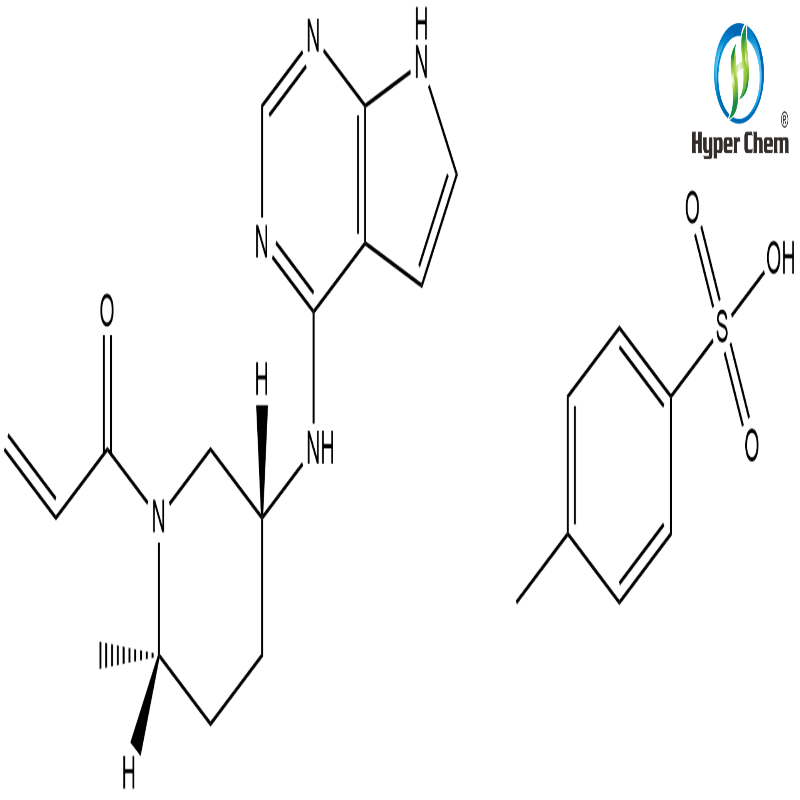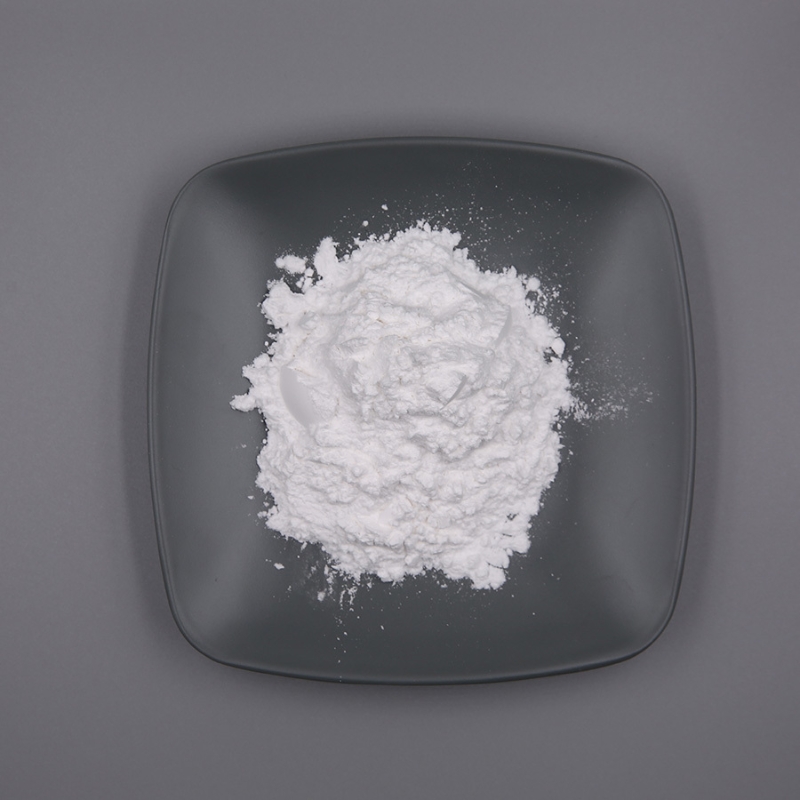EULAR 2020 Wonderful Express: Anti-TNF-alpha Monotatre Latest Progress to see first!
-
Last Update: 2020-07-21
-
Source: Internet
-
Author: User
Search more information of high quality chemicals, good prices and reliable suppliers, visit
www.echemi.com
Although the lar 2020 conference will not be officially held! The annual meeting of the European Union Against Rheumatism (EULAR) is one of the most important academic feast of rheumatism in Europe and even in the world.affected by the global pneumonia epidemic, EULAR 2020 cancelled its original plan to hold in Frankfurt, Germany, from June 3 to June 6 in the form of an online conference. Experts and scholars from all over the world exchange the frontier research and the latest progress in rheumatology in the past year through the network platform.in recent years, with the deepening of people's understanding of rheumatic immune diseases and the progress of drug research and development methods, biological agents targeting cytokines have been widely used in clinical practice and changed the treatment and management mode of rheumatic immune diseases.among them, TNF - α is the key pathogenic factor of rheumatoid arthritis (RA) and ankylosing spondylitis (as), and anti TNF - α monoclonal antibody is the first-line biological therapy scheme recommended by domestic and foreign guidelines.the research progress and clinical application of biological agents, especially anti TNF - α monoclonal antibody, is undoubtedly a hot topic in this conference.the editor picked up the wonderful content at the first time and shared it with readers.01. In the treatment of RA, combination therapy is more effective than biological agent monotherapy. Currently, nine biological agents have been approved for RA treatment in Europe, and three of them have been approved for monotherapy.in a meta-analysis of the report of this Congress, the researchers compared the efficacy of biological agents + traditional anti rheumatic drugs combined with biological agents in the treatment of RA [1].the analysis included 22 randomized controlled trials covering 6346 RA patients, involving six approved biological agents (abamipril, adalimumab, etanercept, golimumab, rituximab, and tobzumab) and two other non approved biopharmaceuticals.the results showed that the ACR20 response rate at 24 weeks was lower than that of the combination regimen [RR: 0.92 (0.89-0.96)] (Fig. 1), while the ACR20 response rates were similar at 52 weeks.the data of acr50 / 70 / 90 response rate, DAS28 score remission, and the proportion of patients with no progress in sharp score were better than those of single drug regimen.in addition, compared with single drug treatment, the proportion of patients with drug withdrawal due to ineffective treatment of combined regimen was lower, and there was no increase in drug withdrawal rate due to drug toxicity.Figure 1: at 24 weeks of treatment, the response rate of ACR20 of the combined regimen was higher than that of single drug therapy. Studies have confirmed that the combination of biological agents and traditional anti rheumatic drugs for improving the condition of RA is more effective than that of biological agents alone.02. Should RA patients continue stable treatment or reduce drug withdrawal after anti TNF treatment? Remission is the primary goal of RA treatment.for patients with persistent remission after receiving anti TNF - α monoclonal antibody, should we consider reducing or stopping the drug? An open label phase IV non inferiority study explored the correlation between the withdrawal of anti TNF - α mAbs and the risk of RA recurrence [2].in the artic rewind study, 99 RA patients with remission more than 12 months after receiving anti TNF - α monoclonal antibody were randomly divided into two groups, and continued to receive stable treatment or gradually reduce the dosage until the drug was stopped.during this process, the traditional anti rheumatic drug treatment for improving the condition of the patient is still maintained.the primary end point was the rate of recurrence in RA patients within 12 months (recurrence was defined as Das > 1.6, DAS score change > 0.6 and ≥ 2 joint swelling, or clinically significant recurrence agreed by both patients and doctors).the results showed that in the stable treatment group, only 5% of patients had relapse within 12 months, which was as high as 62% in the withdrawal group (Figure 2).in RA patients who have achieved remission, the risk of relapse increased significantly after the treatment of anti TNF - α mAb was reduced. [br / >03. Anti TNF treatment significantly improved bone mineral density (BMD) in patients with as. Bone loss is a characteristic manifestation of as, and it shows low bone mineral density (BMD) in clinical examination.a study evaluated the effect of long-term anti TNF treatment on lumbar and hip BMD in patients with as [3].a total of 131 as patients were included in the study, with a median duration of 14 years.at baseline, 34% and 19% of patients had low lumbar bone mineral density (LS-BMD) and hip BMD (hip BMD) (i.e., z score ≤ 1).compared with the baseline results, z-scores of lumbar and hip BMD in as patients were significantly improved during Anti TNF - α treatment.at 8 years of treatment with anti TNF - α monoclonal antibody, the median percentage of absolute bone mineral density improvement assessed was 7.1% in lumbar spine and 1.6% in hip (Figure 3).Fig. 3 anti TNF - α monoclonal antibody treatment for 8 years in as patients to improve lumbar bone mineral density (a) and hip bone mineral density (b) research shows that anti TNF - α monoclonal antibody treatment for 8 years can significantly improve the bone mineral density of lumbar spine and hip, and the improvement effect on lumbar spine is more obvious. This effect can be observed in the first four years of treatment.04. In the real world, anti TNF - α monoclonal antibody has a high degree of satisfaction in patients with as.a real-world study from Korea evaluated the satisfaction of patients with as treated with anti TNF - α monoclonal antibody, and discussed the related factors [4].a total of 497 patients (male 85.3%) were included in the study. The average course of disease was 10 years, and the average BASDAI value was 3.1.the patients were investigated with the drug treatment satisfaction questionnaire (tsqm). Tsqm was composed of four parts: effectiveness, side effects, convenience and overall satisfaction. The higher the score (0 ~ 100), the higher the satisfaction.the results showed that the effectiveness score was 72.2, the side effect was 96.9, the convenience was 67.6, the overall satisfaction was 71.4, and the overall score was high (Figure 4), which confirmed that in the real world, as patients had high satisfaction with anti TNF - α monoclonal antibody treatment.Figure 4 in the real world, the tsqm score of anti TNF - α monoclonal antibody in patients with as is 05. The long-term treatment of whole human biological agent golimumab is stable, which helps long-term disease management. As the latest all-human anti TNF - α monoclonal antibody, golimumab has a humanized degree of 99.1%, which is higher than other TNF - α monoclonal antibodies that have been listed in China. meta analysis showed that the overall anti antibody rate of tnfi was 12.7%, and the anti antibody rate of golimus antibody was only 3.8% [5]. high humanization and low immunogenicity not only lead to better drug tolerance, but also lower secondary failure and more stable long-term curative effect, which is helpful for long-term disease management of patients with rheumatic immune diseases. the results of several studies published in this eular2020 confirmed that the long-term withdrawal rate of golimumab is low, and the drug retention rate is relatively high, which is conducive to the long-term stable treatment of patients with rheumatic immune disease. a real world study in Austria investigated the long-term drug retention rates of a variety of biological agents. the results showed that among the anti TNF - α antibody drugs, the long-term drug retention rate of golimumab was the highest, and the drug retention rate was as high as 70% in one year. After three years of treatment, the drug retention rate was still 50% [6]. another Spanish study investigated the duration of treatment and the retention rate of golimumab in the treatment of adult RA, spa and psoriatic arthritis (PSA) for up to 7 years. a total of 685 patients were included in the study, 38.4% of whom received golimumab for the first time. after 1 year of treatment, the drug retention rate of golimumab was 71.7%, which was higher than that of patients receiving biological therapy for the first time, as high as 83.2%. after 7 years of treatment, the drug retention rate was 39.5% (Figure 5). studies have confirmed that gollimumab is stable in long-term treatment. the risk of discontinuation of golimumab at the first time of biotherapy is relatively lower [7]. Figure 5. The 7-year follow-up rate of golimumab was similar in the subgroup analysis of the go-practice study. the results showed that the withdrawal rate of patients who had used other biological agents in the past was higher than that of patients who had used biological agents for the first time [HR 1.45, 95% CI (1.11-1.90), P = 0.007], which confirmed that the history of biological agents used in as patients was related to the increase in the withdrawal rate of golimumab [8]. [br / > 06. In conclusion, biological agents represented by anti TNF - α monoclonal antibody have become a hot topic in the field of rheumatic immune diseases, and the related research is in full swing, which provides more evidence-based basis and reference for its clinical application. the latest research shows that the combination of biological agents and traditional anti rheumatic drugs is more suitable for the treatment of RA than the single drug regimen. when RA patients achieve sustained remission, the reduction of anti TNF - α mAb can lead to an increase in the risk of recurrence. in the field of as, anti TNF - α monoclonal antibody therapy can significantly improve the BMD of lumbar spine and hip. in real world studies, as patients were more satisfied with anti TNF - α monoclonal antibody therapy. the rate of withdrawal of golimumab in long-term treatment is low, which is helpful for long-term management of rheumatic immune diseases. meeting preview Xi'an YANGSEN immunization Summit Forum (JIS) July 4, 2020 08:00-16:30, July 5, 2020, 08:00-16:40, meet each other online! References: [1] C. Delpech, et al al.EULAR Annual Meeting,June 3-6,2020,THU0163.[2] S. Lillegraven,et al.EULAR Annual Meeting,June 3-6,2020,OP0019.[3] M. Siderius,et al.EULAR Annual Meeting,June 3-6,2020,THU0376.[4] S. H. Lee,et al.EULAR Annual Meeting,June 3-6,2020,THU0622-HPR.[5] Thomas SS, et al. BioDrugs. 2015; 29(4):241-58.[6] V. Nell-Duxneuner,et al.EULAR Annual Meeting,June 3-6,2020,AB0312.[7] M. Pombo,et al.EULAR Annual Meeting,June 3-6,2020,FRI0290.[8] P. Bertin,et al.EULAR Annual meeting, June 3-62020, fri027. - end love me, please show me!
This article is an English version of an article which is originally in the Chinese language on echemi.com and is provided for information purposes only.
This website makes no representation or warranty of any kind, either expressed or implied, as to the accuracy, completeness ownership or reliability of
the article or any translations thereof. If you have any concerns or complaints relating to the article, please send an email, providing a detailed
description of the concern or complaint, to
service@echemi.com. A staff member will contact you within 5 working days. Once verified, infringing content
will be removed immediately.







